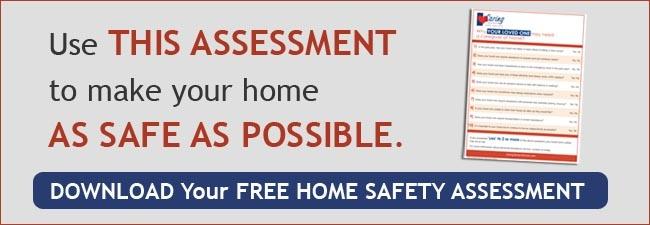Whether it's a blizzard, a hurricane, a wildfire or a rash of tornadoes, severe weather seems more common each year. It’s important for aging seniors to be prepared for difficult weather. However, most severe weather plans are aimed at parents with young children. In this post, we will review some considerations for seniors and their families to prepare for severe weather.
Communication Plan
If you have senior loved ones who live alone, consider gathering your family to set up a communication plan. Together, consider the kind of weather issues that generally occur in your area along with the potential hazards that come with them. Hurricanes, for example, can knock out power and communications for several days; however, these storms are usually widely announced, giving individuals time to evacuate if needed.
When developing your family’s communication plan, here are some specific things to go over with senior parents:
- Emergency Contacts: Make sure your parents have emergency contacts programmed into their cell phone. This list should include at least one out-of-state contact who can assist if nearby friends and relatives are unable to help. Both you and your aging parents should have a hard copy of this emergency contacts list in a common area, like on the fridge, just in case. You can also create inserts for your wallets.
- ICE: Within the emergency contacts list, make sure that your parents have an ICE (in case of emergency) contact. The number should be programmed as a separate contact labeled with ICE. This label can help others identify points of contact in case your senior parents lose consciousness or are injured.
- Blood Type & Allergies: If you or a loved one is injured during severe weather, it can be helpful for doctors, EMTs, or nurses to know your blood type and any specific allergies. This information could be placed on a wallet insert as well.
- Protocol: Establish a communication protocol. Make sure your parents know how to text or send emails. Phone lines can often get overwhelmed or damaged during a storm, so other means of communication may be more effective. In fact, advise your parents that calling may not the best option during an emergency because it’s important to keep the phone lines clear for 911 calls.
- Alerts: Set up weather alerts on your phone for their location as well as on your parent’s phones. These alerts can help notify you of severe weather as it approaches and give you live updates. This feature is also useful when you and your loved one live in different areas.
- Medication: If your loved ones require medication, make sure that they have enough medication on hand to get them through a couple days during an emergency. This preparation is especially important for seniors who have to take daily medications.
Evacuation Plan
In addition to creating a communication plan, you should also discuss where you are going to go if you have to evacuate your home. For seniors with limited mobility, evacuation can be particularly challenging. Here are some tips to consider when creating a family evacuation plan.
- Pickups: If your loved one no longer drives, then plan in advance who is going to pick them up if they need to evacuate their home. Make sure that person has a checklist of things, which need to be packed during an evacuation, such as medication, oxygen or CPAP machines, special food, etc.
- Supply Kit: Help your aging loved ones create a disaster supply kit with water, medications, cash, etc. Don't forget to include any pets in the plan. Store the kit in an easy-to-access place in the home and make sure that your parents know where it is.
- Meeting Spot: Choose a location outside your neighborhood to meet. This spot could be a place of worship, a school, etc. Try to pick a location that has multiple routes to in case trees or other conditions cause some roads to be blocked. During a last-minute evacuation, you should meet there rather than attempting to call people.
- Communication: Make sure that everyone knows the details of the evacuation plan. By communicating the plan with the rest of the family, you can help everyone stay on the same page. If time allows, tell your out-of-town contact where you are going.
- Help: If your loved one lives in a different state, then make sure there is somebody in that area who can help them evacuate. This person would essentially act in your behalf to assist your parents.
- Drills: It's a good idea to do evacuation drills twice a year, especially if you live in a place where evacuation is probably. If evacuation doesn’t seem like a realistic consequence during severe weather, consider shelter-in-place drills to practice what you would do at home during an emergency.
- Supplies: Have the supplies you and your parents need to shelter in place, particularly during snow season. Not all public shelters can handle the needs of seniors, especially if they have mobility problems, are hard of hearing, or are cognitively impaired. It may also be impossible for seniors to evacuate, making it important to have the necessary supplies at home.
Having a communication and evacuation plan for your family is vital, and can be particularly challenging if you have senior loved ones you are keeping an eye on. We’ve seen firsthand how having a plan can benefit your family and the entire community. Read this inspiring story about how our Caring Senior Service of Fremont team was able to help surrounding seniors during severe flooding.


